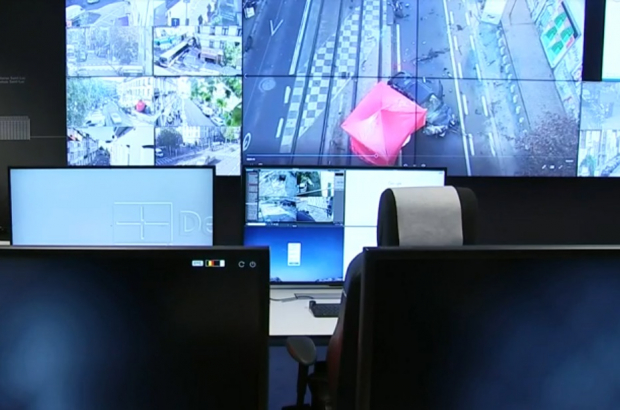- Daily & Weekly newsletters
- Buy & download The Bulletin
- Comment on our articles
New crisis centre opens in Brussels to co-ordinate emergency situations
A new crisis centre has opened in an undisclosed location in Brussels, to allow the authorities to co-ordinate their response in emergency situations such as a terrorist attack. The control centre will also monitor major events planned in the capital such as demonstrations, high-level political visits, European summits, the Brussels 20km race and the annual Pride festival.
There is a central crisis control room with two video walls showing images from 4,000 cameras around the region, plus 12 meeting rooms equipped with the latest communication technology. Up to 100 people can work there.
It was opened earlier this week by Brussels minister-president Rudi Vervoort. “The centre will be a crucial link in the new security architecture developed for the Capital Region,” he told Het Laatste Nieuws. “This is an essential instrument for the Brussels region, and I am very happy with the result. It will certainly give new impetus to our powers in the maintenance of public order and security management.”
The aim is to strengthen co-operation between the various services involved in security, including the federal and local police, the firefighting and emergency medical assistance services, the public prosecutor’s office, State Security, the Co-ordination Unit for Threat Assessment (Ocad) and public transport operator MIVB’s security services.
In addition to the regional crisis centre, there will also be a communications centre that will handle day-to-day operations such as police work, firefighting and medical interventions.
Pressure to establish a centralised co-ordinated response to crises grew following the terrorist attacks in the capital on 22 March 2016, in which 32 people were killed at Maalbeek metro station and Brussels Airport.
A parliamentary committee investigated the response to the attacks and found that there was insufficient interaction between various emergency centres. The committee recommended extra training for emergency staff in the use of existing resources, such as the dedicated communications network.
“I think after 22 March there was a realisation that we had to do all we could to better co-operate,” Paul Van Tigchelt, head of Ocad, told VRT. “If there is a terrorist incident, if we are in a federal phase of emergency planning, where Ocad must declare a level 4 alert, say, to indicate that the threat is imminent, it will be all hands on deck here.”
Image courtesy VRT



















